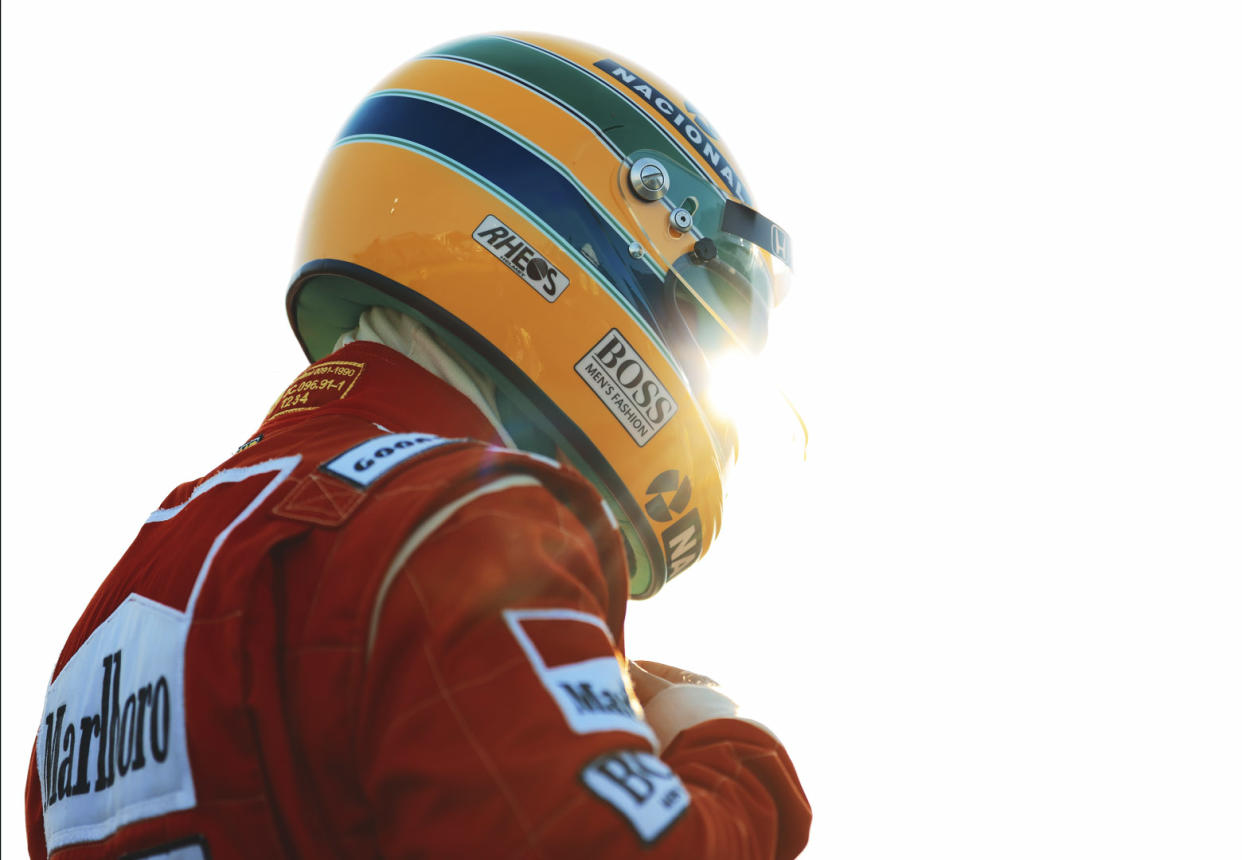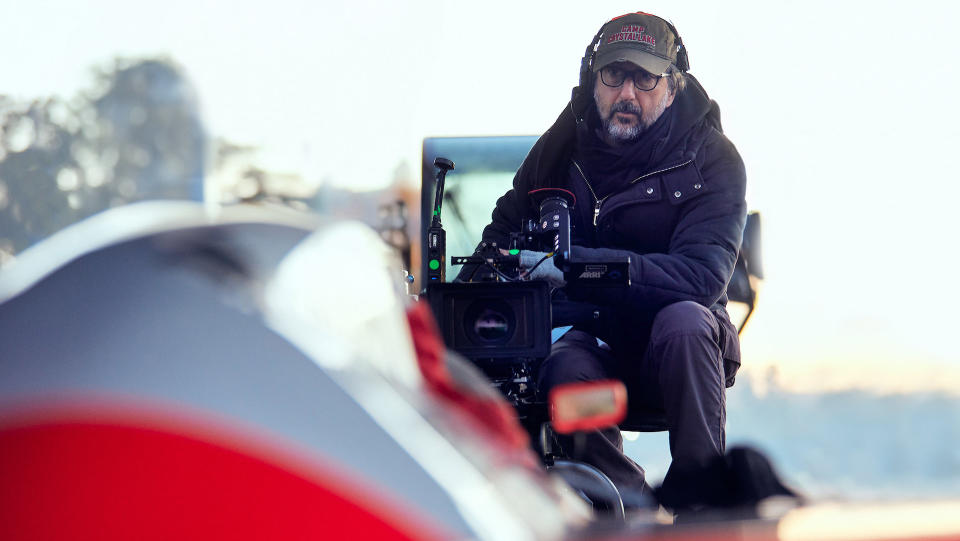Could ‘Senna’ Become the ‘Squid Game’ of Latin America? Netflix Hopes So

Tomorrow marks 30 years since the death of Ayrton Senna, the legendary Brazilian Formula One driver killed in a grisly crash on the track. He’s as close to a god in the country as any man not named Pelé, yet save for the brilliant 2010 documentary “Senna,” his life has never been depicted on screen.
Netflix will be the first to try with its upcoming scripted series “Senna.” With any luck, Senna will not just be an icon in Brazil but the face of Netflix’s enormous expansion into the Latin American market.
More from IndieWire
Kelly McCormick Isn't Betting on a 'Fall Guy' Franchise Just Yet - but She Probably Should
How 'Vanderpump Rules' Slyly Finds Its Most Revealing Moments
“Senna” showrunner Vicente Amorim says his series is one of the biggest productions in Latin American history and uses an almost entirely Brazilian crew, something that demanded a massive investment in the region from Netflix. No one will say how much the “Senna” budget is, but the production values and the re-creation of 13 F1 tracks and models of the vehicles over two years appear to be on par with Netflix’s other global tentpoles.
“It’s not very often that you have the resources to do something like this [here],” Amorim told IndieWire. “Latin America is ready for a bigger leap, not just artistically, because I think that’s always been obvious, but also technically and production-wise, delivering something that is special. I don’t think people watching ‘Senna’ anywhere in the U.S. or Europe or internationally, it’s not even going to cross their mind, ‘Is this a Brazilian show?'”
“Senna” is one of four projects each with a similar ambition, scope, and prestige as part of the company’s content strategy in LATAM for 2024. There’s an adaptation of “One Hundred Years of Solitude,” a masterpiece of Colombian fiction that won its author Gabriel García Márquez the Nobel Prize for Literature. “El Eternauta” (“The Eternaut”) is an apocalyptic, sci-fi adaptation of an Argentinian graphic novel first published in the 1950s that stars Ricardo Darin. And last is “Pedro Páramo,” another adaptation of an influential Mexican book that happens to be the directorial debut of master DP Rodrigo Prieto.
Francisco “Paco” Ramos, Netflix’s LATAM VP of Content, says it’s all part of a drive to structure its slate around more tentpoles, ambitious titles, auteur-driven projects, and recognizable IP. Early LATAM Netflix series were made by filmmakers coming to TV because so many of the TV directors in the area made their bones on telenovelas. Things are becoming a lot more sophisticated south of our border.
Though the LATAM landscape may be growing up, the market is already grown. Netflix has nearly 48 million subscribers in the region, about as many as in the Asia-Pacific region. Unlike the U.S. and Canada, neither area is anywhere near matured. And as broadband reaches smaller pockets of Latin America, the market is not just getting more access, it is becoming more sophisticated.
“That’s why we have to keep delivering and doubling up on ambition. Sometimes, not all the time, but sometimes doubling up on ambition also requires doubling our budgets,” Ramos said. “But we do it gradually. I think that the big learning we’ve had is that if you tried to go faster than the ecosystem, the infrastructures, the talent, then you start not nailing— not landing the creative right because you are, I think, pushing faster than you should.”
“Senna,” if executed properly, is almost guaranteed to chart locally. But can it do for Latin America what “Squid Game” did for Korea?
“It will,” Amorim said bluntly of his show.

Ramos is a bit more tempered, and for good reason. “Squid Game’s” first season was viewed for 2.2 billion hours and is by far the most-watched Netflix title in any language.
“It’s a difficult bar,” he said, but he believes that across LATAM and in parts of Europe where Formula One is huge, it could be “very relevant.”
“Senna” has as good a chance as any series to break out. Netflix had a surprise hit with its F1 series “Drive to Survive,” so the topic is member-friendly. Amorim says conceiving of a series based on Senna’s life pre-dates the success of “Drive to Survive,” but the reality show certainly helped Netflix green light his project. (The green light here especially means go, go, go.)
“Senna” is told in a mix of Portuguese and English, and Senna as a racer has true international appeal. Crossing over to a global audience may be the unspoken, ultimate goal for both Amorim and Ramos, but neither thinks that can be the plan at the starting line.
“I don’t believe in stories that are contrived to work internationally. ‘Oh, I’m going to come up with a story that will work all over the world.’ That probably won’t work,” Amorim said. “The only stories that work internationally are when they work for their local market first.”
Watch the “Senna” teaser here:
Best of IndieWire
The Best LGBTQ Movies and TV Shows Streaming on Netflix Right Now
Guillermo del Toro's Favorite Movies: 54 Films the Director Wants You to See
Nicolas Winding Refn's Favorite Films: 37 Movies the Director Wants You to See
Sign up for Indiewire's Newsletter. For the latest news, follow us on Facebook, Twitter, and Instagram.
